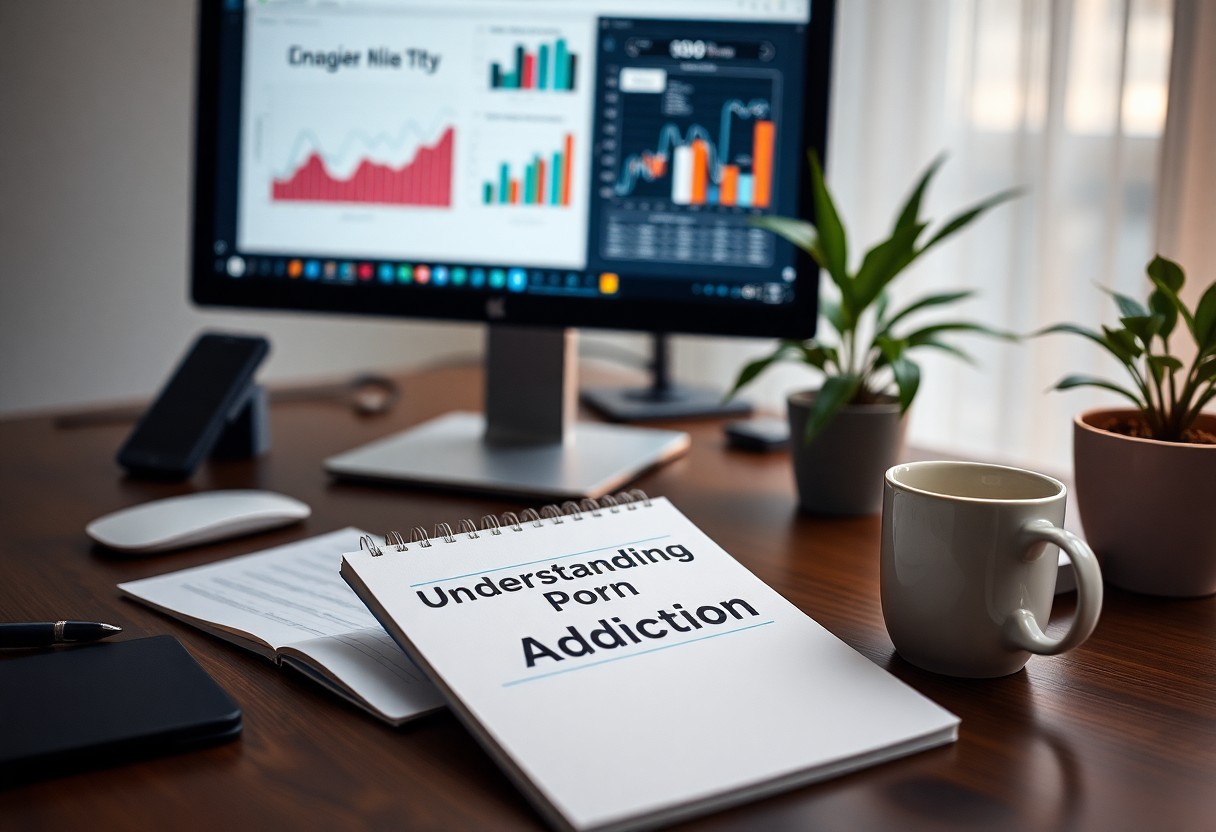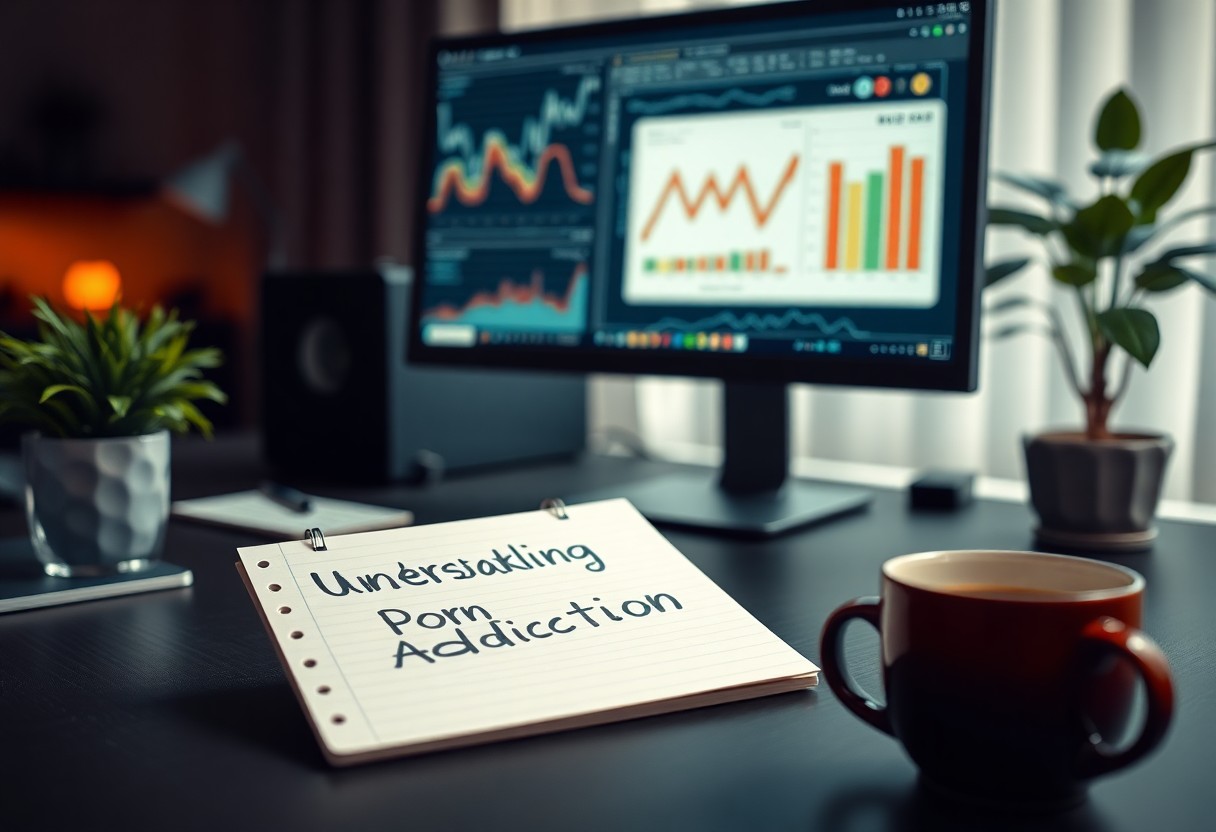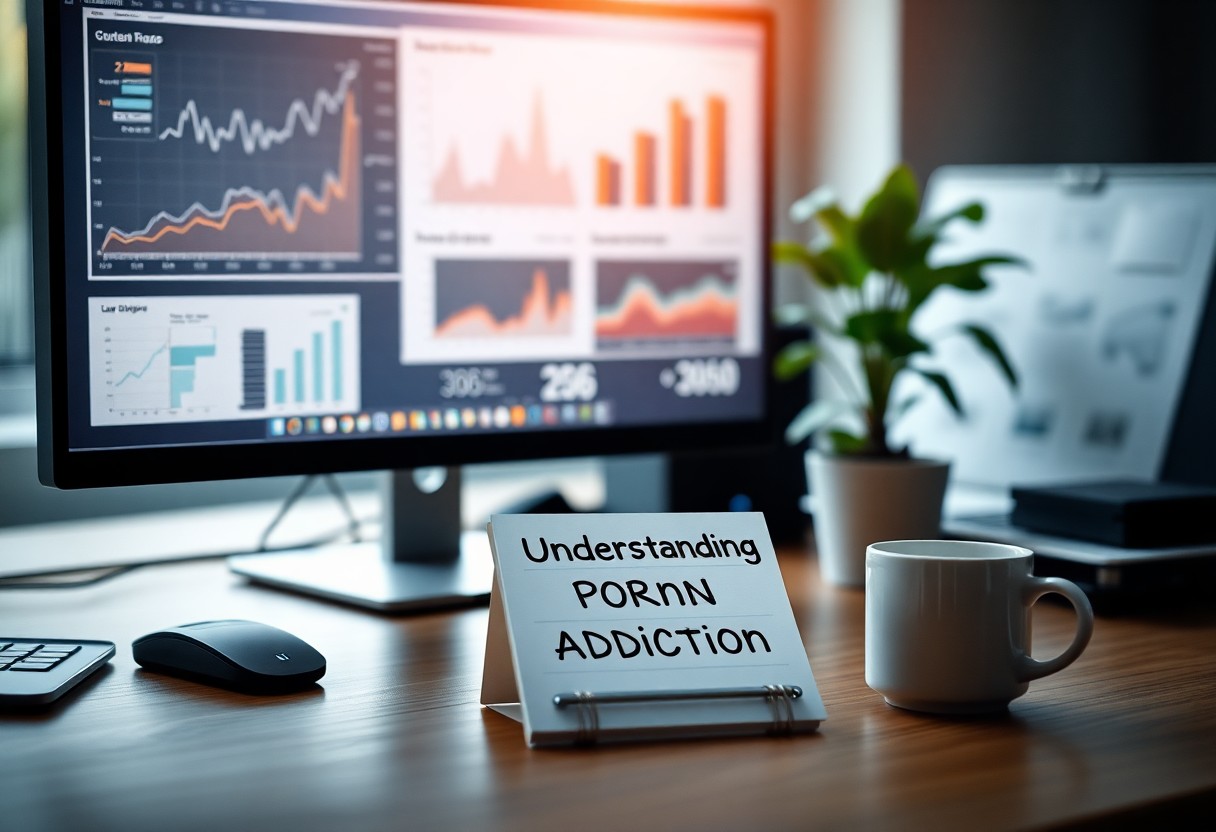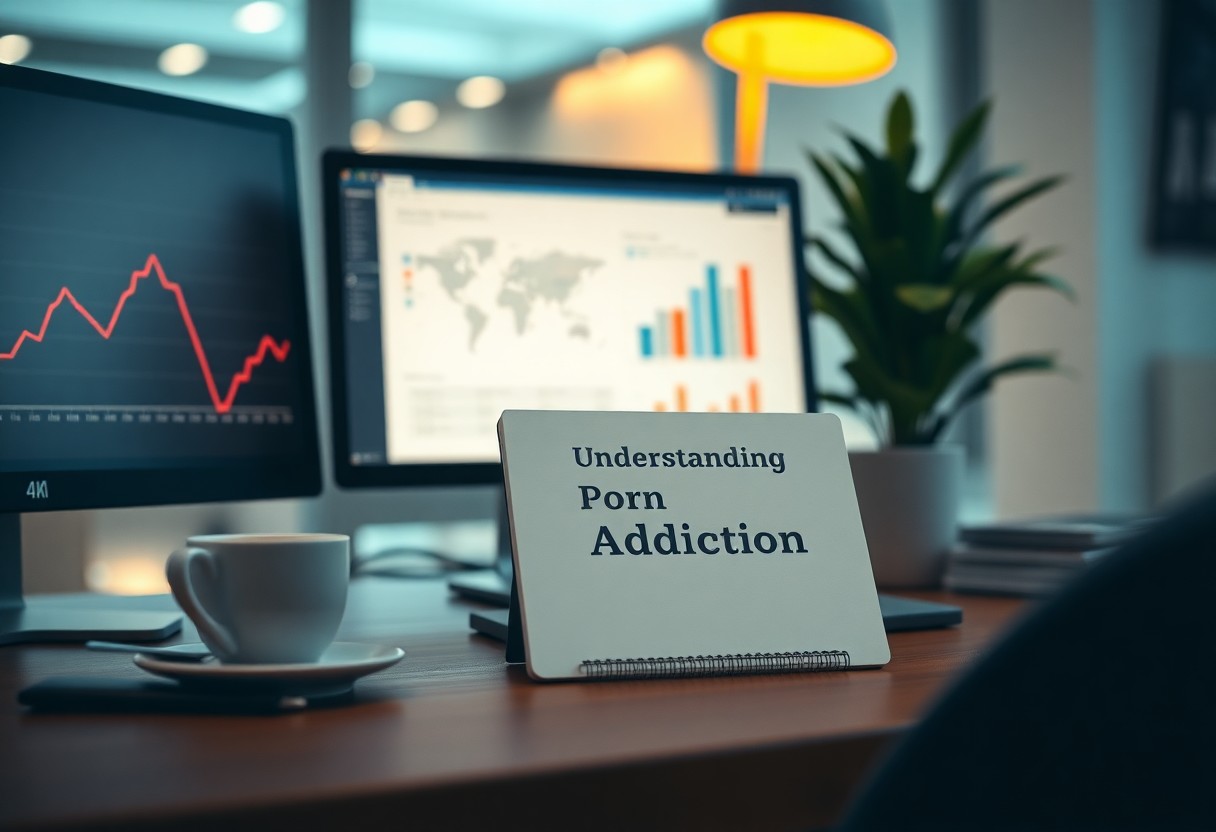It’s necessary for you to stay informed about the ever-evolving landscape of porn addiction, especially as new insights emerge in 2025. This blog post will provide you with seven valuable tools to help you understand not only the nature of porn addiction but also its effects on your life and relationships. By familiarizing yourself with these tools, you can empower yourself to make informed decisions and seek healthier pathways for emotional and mental well-being.

Key Takeaways:
- Understanding porn addiction requires a multifaceted approach, including psychological, emotional, and social factors.
- Assessment tools such as questionnaires and screening tests can help identify the extent of an individual’s porn consumption and its impact on their life.
- Engaging in therapy, particularly cognitive-behavioral therapy (CBT), has been shown to effectively address behaviors related to porn addiction.
- Support groups, either in-person or online, can provide a sense of community and shared experiences, which can be beneficial in recovery.
- Awareness of the effects of porn on relationships and mental health is vital for fostering healthier interactions and personal well-being.
Understanding Porn Addiction
While many people view pornography as a harmless activity, understanding the nuances of porn addiction is key to recognizing its potential impact on your life. It can manifest in your daily routines and relationships, leading to challenges that might feel overwhelming. For guidance on tackling this issue, explore the 7 Tips for Overcoming Pornography Use.
Defining Porn Addiction
Above all, porn addiction can be defined as a compulsive behavior where you find it difficult to control your consumption of pornographic material, despite its negative effects on your life and relationships. It can take hold in various forms, making it imperative to identify when usage becomes problematic.
The Psychology Behind Addiction
Between emotional triggers and neurological pathways, the psychology behind porn addiction involves complex interactions that shape your behavior. Recognizing these patterns helps you understand the roots of your addiction.
Further exploring the psychology behind addiction reveals how the brain responds to stimuli associated with pornography. When you engage with pornographic material, your brain releases neurotransmitters like dopamine, which create feelings of pleasure. Over time, this can lead you to seek out more extreme content to achieve the same high, reinforcing a cycle that makes it increasingly difficult to break free. Understanding this dynamic can empower you to seek healthier coping mechanisms and regain control over your choices.
Tool 1: Self-Assessment Quizzes
You might find self-assessment quizzes to be valuable tools in your journey to understanding porn addiction. These quizzes allow you to evaluate your relationship with pornography and identify patterns that may be affecting your life. By answering a series of targeted questions, you can gain insights into your behaviors, triggers, and emotions related to porn usage, guiding you towards effective strategies for change.
Benefits of Self-Assessment
Any self-assessment can help clarify your thoughts and feelings regarding porn consumption. By reflecting on your habits, you can identify areas for growth and gain greater self-awareness. This process often lays the groundwork for seeking support or developing a personalized plan to tackle your addiction, leading to informed choices and healthier coping strategies.
Available Online Resources
An abundance of self-assessment quizzes are readily available online, designed specifically to assess porn use and its impact on life. These resources can range from quick surveys to more in-depth questionnaires, allowing you to choose one that best suits your needs and comfort level.
For instance, websites dedicated to mental health often feature scientifically-backed assessments that provide immediate feedback on your results. Some quizzes not only diagnose potential addiction signs but also recommend further reading, community support, or professional help based on your answers. Engaging with these quizzes can serve as a starting point for deeper exploration and insight into your relationship with pornography.
Tool 2: Journaling Techniques
Not only does journaling serve as a therapeutic outlet, but it also provides insights into your relationship with porn addiction. By committing your thoughts to paper, you can track patterns, triggers, and emotions related to your usage. This self-awareness can be a powerful step towards recovery and understanding your behaviors. You may discover new strategies and insights that benefit your journey.
The Power of Reflection
An important aspect of journaling is the opportunity for reflection. When you put your feelings and thoughts into words, you create a tangible way to examine your past experiences. This reflective practice can unveil underlying issues contributing to your porn use, helping you to recognize behavioral patterns and emotional triggers that may have previously gone unnoticed.
Suggested Journaling Prompts
Before you begin, consider using specific prompts to guide your writing sessions. These prompts can lead you to explore your emotional states, identify triggers, and express your desires for change. Try questions like, “What emotions drive my urge to watch porn?” or “What alternatives can I choose when I feel the urge arise?”
Reflection on these prompts encourages deeper self-exploration and brings awareness to your coping mechanisms. You can uncover significant insights about your relationships, desires, and patterns of behavior. By establishing a regular journaling practice, you become more equipped to navigate your feelings surrounding porn and take positive steps towards change.

Tool 3: Support Groups and Forums
Keep in mind that support groups and forums play a significant role in your journey toward overcoming porn addiction. They offer a safe space where you can connect with others facing similar struggles, share experiences, and gain invaluable insights. By participating in these communities, you can find encouragement and accountability, which are imperative for fostering lasting change.
The Importance of Community
For anyone dealing with porn addiction, connecting with others who understand your challenges can be highly beneficial. Community support fosters empathy, reduces feelings of isolation, and encourages you to pursue healthier habits. Engaging with people who have experienced similar issues provides perspective, allowing you to learn from their successes and setbacks.
Recommended Platforms
With the abundance of online resources available, platforms like Reddit, NoFap, and Elephant Journal provide great environments for discussion and support. These forums enable you to engage with a diverse group of individuals, offering a wide array of perspectives and experiences that can enhance your understanding of porn addiction.
Support groups such as NoFap not only focus on sharing personal stories but also offer structured programs and resources to help you stay committed to breaking free from addiction. Joining these platforms allows you to participate in discussions, access articles, and connect with others who share the same goals, empowering you to take meaningful steps towards recovery.
Tool 4: Professional Counseling
All individuals struggling with porn addiction can benefit immensely from professional counseling. A licensed therapist can provide personalized strategies to help you navigate your challenges and work towards recovery. They offer a safe space where you can explore the underlying issues related to your addiction, allowing for healthier coping mechanisms and personal growth.
Types of Therapists to Consider
Types of therapists you might consider for porn addiction treatment can include:
| 1. Psychologists | Focus on mental health and behavioral patterns. |
| 2. Psychiatrists | Medical doctors who can prescribe medication if necessary. |
| 3. Licensed Professional Counselors (LPC) | Specialize in various counseling techniques. |
| 4. Marriage and Family Therapists (MFT) | Address relational dynamics that may contribute to addiction. |
| 5. Addiction Specialists | Focus exclusively on substance and behavioral addictions. |
The choice of therapist can significantly influence your recovery journey.
How to Seek Professional Help
Against the backdrop of your struggles, seeking professional help is a commendable step towards recovery. Taking action by locating a qualified therapist who specializes in porn addiction is necessary. This might involve researching local resources, reading reviews, and possibly booking consultations to find a match that feels right for you.
Even exploring online therapy options can broaden your choices while allowing for convenience. Many mental health professionals now offer virtual sessions, which can be a comfortable option for discussing sensitive issues. Make sure to prioritize your preferences and needs when selecting a therapist, and don’t hesitate to reach out to them to discuss how they can assist you on your journey to recovery.

Tool 5: Educational Resources
For those seeking to better understand porn addiction, educational resources are an invaluable tool. These materials can enrich your knowledge and provide insights into the psychology and consequences of addiction, enabling you to approach the subject with awareness and sensitivity. Accessing a variety of resources, from literature to online programs, can help you navigate your journey toward recovery and healthy relationships with intimacy.
Books and Articles on Porn Addiction
After entering into books and articles dedicated to porn addiction, you can gain in-depth perspectives and evidence-based strategies to address your concerns. Titles written by mental health professionals often provide a well-rounded view of the issues surrounding porn addiction, as well as practical advice for managing it in your life.
Online Courses and Workshops
Any exploration of online courses and workshops can significantly deepen your understanding of porn addiction. These educational formats often present structured learning experiences, offering interactive elements that promote engagement and personal reflection, which can be instrumental in your journey toward healing.
The flexibility of online courses and workshops allows you to learn at your own pace, tailoring your education to your specific needs and experiences. Many programs include valuable resources such as discussions with experts, peer support, and guided exercises to help you develop coping strategies and build awareness surrounding your behaviors. By participating in these learning opportunities, you can further equip yourself to address your challenges with porn addiction effectively.
Summing up
Hence, understanding porn addiction and its impact on your life is imperative for personal growth and well-being. The seven tools discussed provide you with actionable insights and steps to navigate this challenging journey. By utilizing resources and seeking guidance, you can effectively manage your habits and work towards a healthier relationship with sexuality. For more detailed steps, check out How to Stop Watching Porn – 11 Steps to Quit … to guide you on your path.
FAQ
Q: What are the main tools discussed in the ‘7 Tools to Understand Porn Addiction – 2025 Update’?
A: The main tools include educational resources such as books and articles on porn addiction, digital tracking applications that monitor usage, community support groups both online and offline, therapy techniques including cognitive behavioral therapy, assessments to evaluate the severity of the addiction, mindfulness practices, and self-reflection journals to track personal progress.
Q: How can educational resources help with understanding porn addiction?
A: Educational resources provide valuable insights into the causes, effects, and mechanisms of porn addiction. They can help individuals identify if they have a problem, understand the psychology behind their habits, and learn strategies for recovery. By gaining knowledge, individuals become equipped to better address their addiction and make informed choices about treatment.
Q: What role do digital tracking applications play in managing porn addiction?
A: Digital tracking applications help users monitor their porn consumption patterns and set goals for reduction or abstinence. These tools can provide analytical insights, reminders to help users stay accountable, and support for managing triggers. By visualizing their behavior, individuals can develop a clearer understanding of their relationship with pornography.
Q: Why are community support groups recommended for those struggling with porn addiction?
A: Community support groups offer a platform for sharing experiences, gaining support, and fostering connections with others facing similar challenges. They provide a sense of belonging and reduce feelings of isolation. Participants can also benefit from shared coping strategies and encouragement as they work towards recovery together.
Q: What therapy techniques are most effective for treating porn addiction?
A: Cognitive Behavioral Therapy (CBT) is widely regarded as an effective approach in treating porn addiction. It focuses on changing negative thought patterns and behaviors associated with addiction. Other techniques may include motivational interviewing, mindfulness-based therapies, and group therapy, all of which help individuals explore their motivations and develop healthier coping mechanisms.
Q: How can self-reflection journals assist someone recovering from porn addiction?
A: Self-reflection journals encourage individuals to track their thoughts, emotions, and behaviors related to porn usage. This practice helps identify triggers and patterns, fostering personal insight and solutions. Journals can also serve as a motivational tool to document progress and reinforce commitments to change.
Q: What are the future trends in understanding and treating porn addiction as mentioned in the update?
A: The update highlights an increasing emphasis on integrating technology with therapeutic practices, such as the use of AI-based interventions designed to provide personalized support. Additionally, a greater awareness of porn addiction’s impact on mental health and relationships is expected, leading to broader discussions and education. Ongoing research may also lead to more effective treatment strategies and preventative measures.
